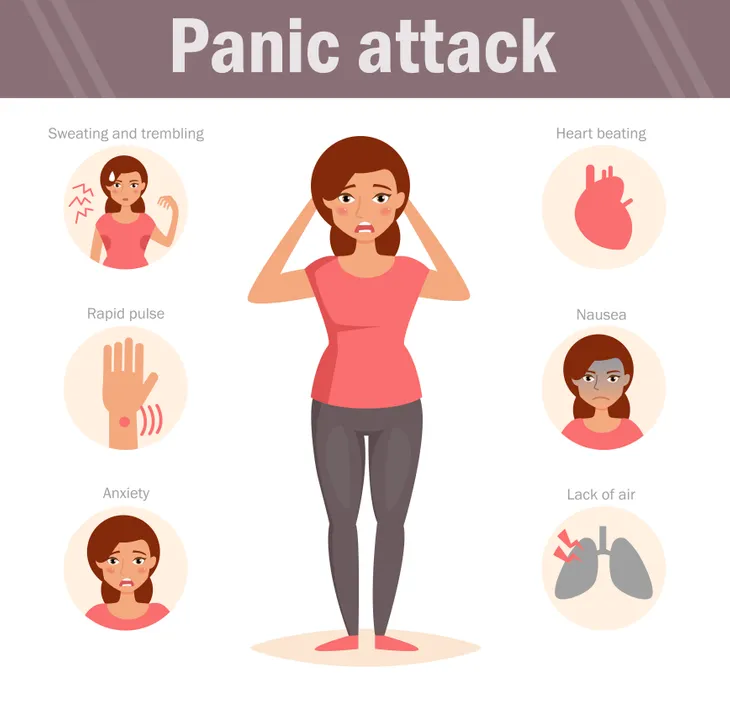It’s important to understand the differences between anxiety and a panic attack so that, should you experience one or the other, you can correctly identify your symptoms and seek out effective treatment.
Read on to find out more about the differences between a panic attack and anxiety.
Clinical Definitions
Medical professionals use a handbook called the Diagnostic and Statistical Manual of Mental Disorders, 5th edition, when diagnosing and treating mental health conditions. In the DSM-5, as it is more commonly referred to, the term ‘panic attack’ refers to “an abrupt surge of intense fear or intense discomfort that reaches a peak within minutes.” It is associated with the condition known as panic disorder.”
VeryWell Mind explains that in the DSM-5 “anxiety is used to describe a core feature of several illnesses identified under the headings of, ‘Anxiety Disorders,’ ‘Obsessive-Compulsive Disorders,’ and ‘Trauma- and Stressor-Related Disorders.’” These include panic disorder, as well as others such as social anxiety disorder, obsessive-compulsive disorder, and post-traumatic stress disorder.
Causes
The causes, or triggers, associated with anxiety and panic attacks are different also. When a person has anxiety, VeryWell Mind says it “generally intensifies over a period of time and is highly correlated to excessive worry about some potential ‘danger.’” According to the University of Michigan, these may include illness or death, or “even minor events such as being late for an appointment or other uncertain outcomes.”
Panic attacks, however, don’t always occur as a result of a stressor. They come on suddenly and can be “unprovoked and unpredictable,” and cause a person to seize “with terror, fear, or apprehension,” explains ABC News.
Occurrence
There are also differences in how anxiety and panic attacks occur. With anxiety, as mentioned earlier, it builds slowly over time “when we are worrying about some future event — anticipating a bad outcome that might happen,” says Ricks Warren, Ph.D., who is a clinical associate professor of psychiatry at the University of Michigan.
On the other hand, panic attacks occur very abruptly. Essentially, the source explains, panic attacks are “short bursts of intense fear” (typically lasting under 30 minutes) that trigger the body’s fight-or-flight mode “in order to deal with immediate danger.
Panic Attack Symptoms
Although there is quite a bit of overlap in symptoms between anxiety and panic attacks, there are a few that distinguish one condition from the other. With panic attacks, ABC News says the individual “may feel that they’re going to die, or lose control or have a heart attack.”
Physical signs may include an increased heart rate, chest pain, and shortness of breath. The source adds that people may experience what’s known as ‘anticipatory anxiety,’ where they worry about having the next attack, and may even go so far as to avoid places where previous attacks have occurred.
Anxiety Symptoms
With anxiety, a person may experience tension in their muscles, disturbed sleep, and troubles concentrating as a result of their excessive worry. They may also be highly irritable, restless, and be easily startled.
And, because anxiety tends to come on gradually, VeryWell Mind says these symptoms “may be persistent and very long-lasting—days, weeks, or even months,” another factor that distinguishes anxiety from panic attacks.
Treatment
Although similar medications may be prescribed to treat both anxiety and panic attacks, therapy and self-help strategies tend to differ. With anxiety, Dr. Warren from the University of Michigan helps by “teaching a patient about the role of worry in creating the symptoms and how to manage the worry.”
While with those who experience panic attacks, he says, “…we might show them a diagram and explain the fight-or-flight response” so they can understand that “their mind or body is trying to help them.”









